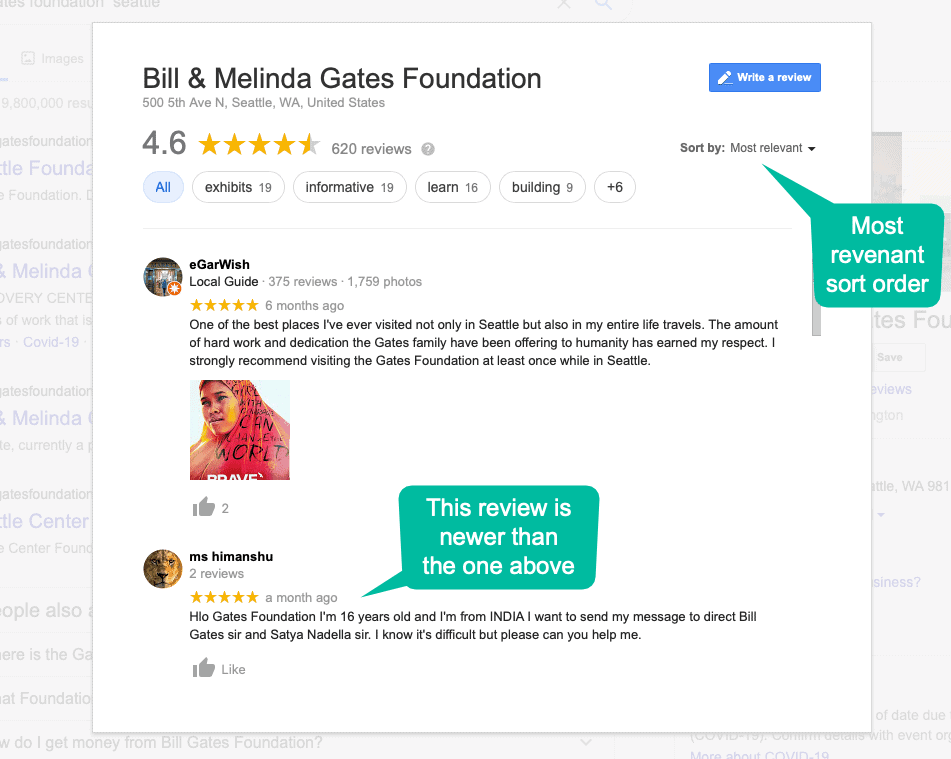What do you mean by relevant review?
Looking at your Google My Business page – you may be surprised to see that your latest reviews are not a the top of the Google Review list. Check out the screenshot below from Bill and Melinda Gates Foundation’s review page on Google (which is well worth a visit by the way – the work is life-saving and innovative).
Notice how the older review is above the new review

It’s sorted by relevance, rather than recency.
How does Google define relevance for reviews?
We spent a week reviewing 100’s of Google reviews across a variety of businesses to see if we could identify a pattern
- Length – The number of words in a review had a clear impact on how relevant it was considered. There was a consistent correlation between the number of words contained in a review with its position in the Most Relevant rankings.
- Keywords – Using the name of the business in the review led to an increase in the post’s relevancy ranking.
- Specific – A review that contained a specific story or example was more likely to rank higher than reviews with generic content.
- Local – A review by a user who posted other reviews in the local area is deemed more relevant than a user with either no reviews or one with reviews from a different geographic location.
- Time – The more time that passes since a review is posted, the less relevant it becomes.
| Criteria | Description |
| Time | Although the results are not sorted by date, recency does play a role in determining how relevant a result is. A good way of thinking of this is that restaurant menus will often change every season or year. Therefore a review from 2 years ago will lose its relevancy due to age. Tip: Read our article How to ask for a review |
| Google Local Guide | Reviews submitted by a Local guide are likely to be seen as more relevant, especially if the quality score of the local guide is high. |
| Length of review | At least 200 characters. Reviews that are very verbose do not perform as well as those between 200 and 300 characters |

